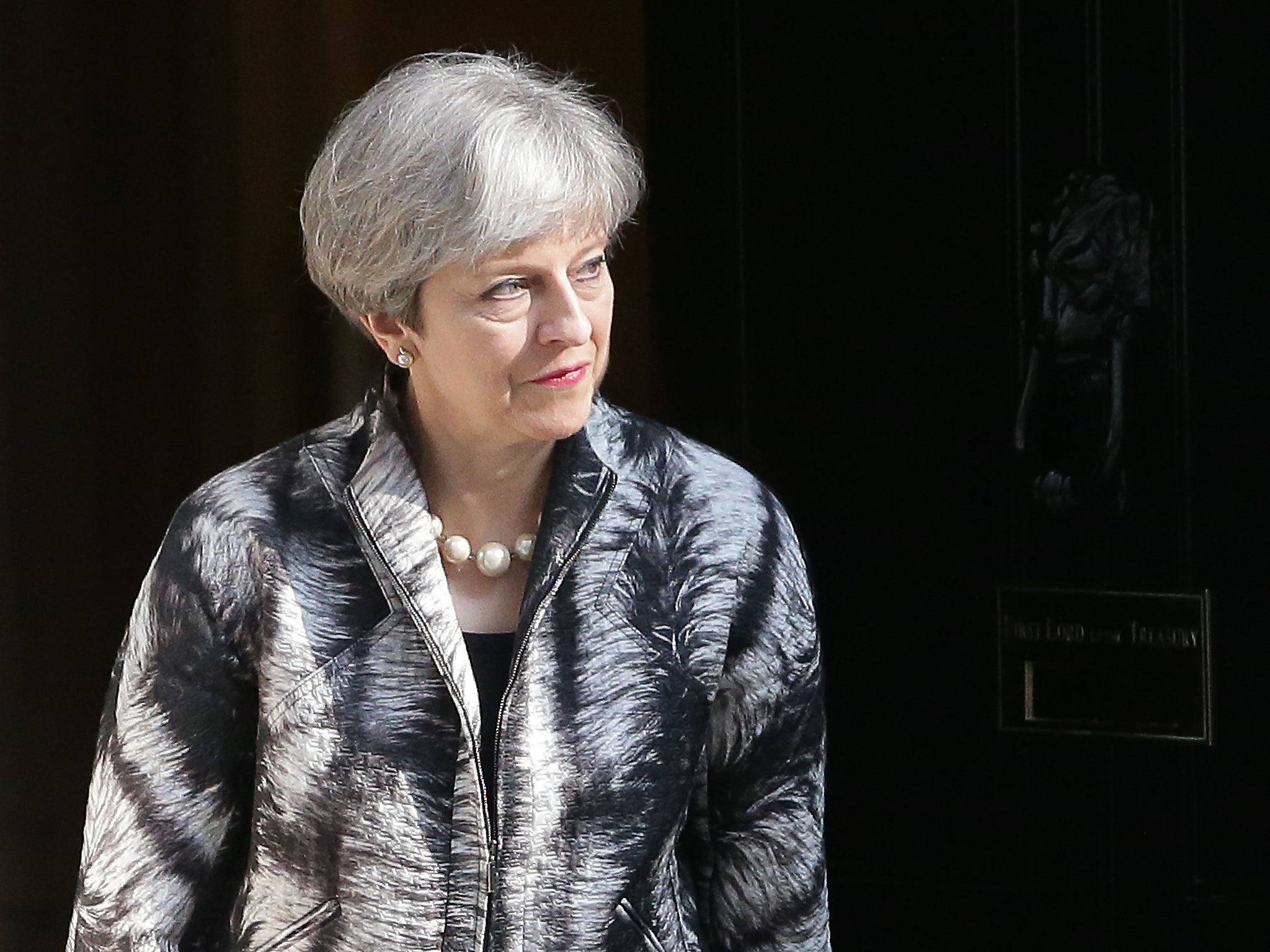The truth is that if you want a soft Brexit, you need to vote for Theresa May
It’s not the rest of the country who May wants control over, but the strident backbenchers who want a super-hard Brexit and would destroy her government if they had the chance. She obviously can’t tell us the truth about that, so she has to go on about mandates and negotiations

It’s very unlikely to make it onto a real-life billboard, but the most appropriate Conservative election poster for the 2017 general election would comprise a big picture of the Prime Minister – it is a lot about her – looking a little soft-focus, with her name at the top and, at the bottom where the word “Conservative” would usually be, the phrase “Soft Brexit”.
For what is becoming quite apparent is that this is indeed her aim, and she started to realise that, as the Brexit deadline nears and the 2020 general election date came closer, it would be her own maniac backbenchers, and not pro-EU Tories of the official opposition, who would wreck her plans and any agreement with the EU for Britain.
It is they who would prevent a delivery of the kind of soft Brexit that would mean compromises and fudges. Because they are sovereignty absolutist and feel they owe her nothing, and are habitual rebels, they could destroy her government, her career and her party, as well as her deal with the EU. Realise that, and all that has happened these past few days becomes clear.
If you want a soft Brexit, then – though May is said to intensely dislike the term – you should vote Conservative, or least for a Conservative candidate who is not a fully paid-up member of the swivel-eyed brigade.

You can quite easily tell who is a Tory soft Brexiteer by finding out if they supported the Leave or the Remain side in last June’s referendum. Theresa May and Philip Hammond were Remainers, remember. The Conservative Party may well claim, with some justification, that “we’re all Brexiteers now”, in the sense that they accept the verdict of 23 June and will honour it; but there are enormous differences between those who want to “crash out” with no deal and trade on WTO terms, and those who want as close a match to our existing arrangements.
Quietly, Theresa May – and more pointedly her Chancellor and maybe even her Brexit Secretary David Davis, may have begun to realise that the price of hard Brexit will be very great indeed, and they are not as relaxed as they appear to be about it (which isn’t relaxed at all in the case of Hammond).
In order to get that best possible soft Brexit deal in the negotiations, the PM will not want to be looking over her shoulder all the time at the Eurosceptic “b*****ds” on her own back benches. She has been around long enough to see what that did to John Major after 1992 (and she starts with an even smaller majority than he started that parliament with).
She wants a large a majority to face them down, and she wants a cadre of Tory MPs in Parliament for the first time in 2017 who especially owe their place there to her leadership. They, it may be guessed, will be especially loyal to her.
What’s more, her opponents and critics elsewhere in her party will be diminished by her gaining her own mandate. More and more marginalised – with George Osborne now saying he will stand down – the old Notting Hill set, the Cameroons, will also be even further from power than they are now. They were, it is rumoured, waiting for the May government to collapse, so that they could take over again. That might still happen, but the time horizon for that has suddenly stretched further into the distance. David Cameron, George Osborne, Michael Gove and Boris Johnson, plus apostles, were divided and divided again during the referendum process and the leadership crisis that followed it. Now there seems to be fewer and fewer reasons for them to hang about.

So if you really want to get out of the EU, but want to do so without unnecessary damage, then the May way is the better way. Labour’s offer isn’t so far removed from that, in truth, but it comes with a whole dump truck of socialist baggage.
The Lib Dems don’t want Brexit at all, as we know; while Ukip want Brexit at any and all costs, as we also know. Thus May is the Brexit “moderate”. She, like her imaginary “Vote May for a Soft Brexit” poster, cannot ever tell us the truth about these sorts of calculations, which is why she has to go on about mandates and negotiations so much.
That stuff is all true – but it is only part of the truth. She is appealing to the mildly Eurosceptic, blowing a political “dog whistle” to do so, and thus appealing to what is a sizeable slice of mainstream British public opinion. She may be wrong to want Britain out of the EU, but, as with some other policy areas, she seems to have an understanding of what “Middle England” wants.
Join our commenting forum
Join thought-provoking conversations, follow other Independent readers and see their replies
Comments
Bookmark popover
Removed from bookmarks